 For those that love gambling, there is something about the roulette wheel that constantly appeals. They might not know why it is that they like playing roulette, struggling to understand why they return to the table time and time again when they’re much better at other games in the casino. The answer comes in the form of uncertainty being its own reward, with the moment that the ball is released by the croupier and begins spinning around the wheel one of unfettered excitement that simply cannot be matched by any other means.
For those that love gambling, there is something about the roulette wheel that constantly appeals. They might not know why it is that they like playing roulette, struggling to understand why they return to the table time and time again when they’re much better at other games in the casino. The answer comes in the form of uncertainty being its own reward, with the moment that the ball is released by the croupier and begins spinning around the wheel one of unfettered excitement that simply cannot be matched by any other means.
The ball spinning around the roulette wheel is a moment of pure joy for some bettors, with the uncertainty about what will happen next even more thrilling to them than a guaranteed win would be. This idea that uncertainty can be its own reward is a complex one, but one that has a basis in science. Workers are more motivated to work if they don’t know what the outcome will be than those that know precisely what lies at the end of the rainbow. Uncertainty is also more motivating for people on the way to a goal, which applies to bettors just as much.
Of course, in betting uncertainty is the same as risk and taking risks it not a good long term strategy. Most professional gamblers will minimise uncertainty as much as they can to try to guarantee returns. While uncertainty can be rewarding emotionally it is not something that successful punters should look for. It ultimately depends on why you bet and what you bet for, do you bet to win or bet for the enjoyment?
What Is Uncertainty?
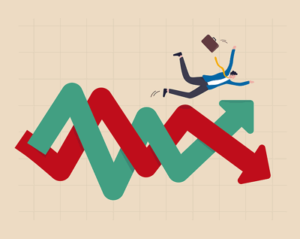 In the real world, there are effectively two different things: certainty and uncertainty. The former means that you know what is going to happen, with a clear outcome possible as long as you follow the path laid out in front of you. Uncertainty, on the other hand, is the notion that you have no real idea what it is that is around the corner. The future is unclear and whether or not you have made the right decision in something won’t become apparent until further down the line. In front of you is darkness, with no sense of what the outcome of your actions will be.
In the real world, there are effectively two different things: certainty and uncertainty. The former means that you know what is going to happen, with a clear outcome possible as long as you follow the path laid out in front of you. Uncertainty, on the other hand, is the notion that you have no real idea what it is that is around the corner. The future is unclear and whether or not you have made the right decision in something won’t become apparent until further down the line. In front of you is darkness, with no sense of what the outcome of your actions will be.
There will always be some that feel much more comfortable with the guaranteed outcome, performing better if they know what it is that they are aiming for. This is not the overwhelming majority of people, however, and research suggests that it is uncertainty that most people will respond better to when working. It creates more positive and exciting experiences, with most people being excited by the unknown. Uncertainty leads people to invest more money and more time to discover the outcome of the path that they’ve started to follow.
Uncertainty can be decreased in some areas, such as sports betting. The more research and study you do around a bet the more you can increase your certainty. Just because uncertainty can be its won reward does not mean we should throw caution to the wind and not try to back the right markets.
We’re Naturally Risk Averse
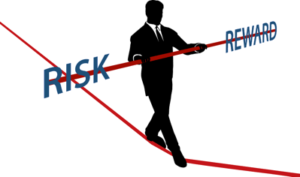 It might seem odd to say as much, but people are generally quite risk-averse in nature. Research done by Bernoulli in 1738, von Neumann and Morgenstern in 1944 and Kahneman and Tversky in 1979 all backs up this opinion. The research is clear: when assessing the reward path to take, people are risk-averse and prefer a reward that is certain in nature to one that is uncertain. As a result of this research, many have chosen to assume that uncertainty isn’t as appealing as certainty and have therefore ignored the former in favour of the latter.
It might seem odd to say as much, but people are generally quite risk-averse in nature. Research done by Bernoulli in 1738, von Neumann and Morgenstern in 1944 and Kahneman and Tversky in 1979 all backs up this opinion. The research is clear: when assessing the reward path to take, people are risk-averse and prefer a reward that is certain in nature to one that is uncertain. As a result of this research, many have chosen to assume that uncertainty isn’t as appealing as certainty and have therefore ignored the former in favour of the latter.
In spite of this, new research shows that people are much more likely to be motivated when chasing uncertainty than certainty. In 2014, Moon and Nelson discovered that having a sense of uncertainty about a positive outcome gives us a feeling of enjoyment and excitement that isn’t achieved when we’re certain about what will happen. In the same year, Klein and Fishbach discovered that having such feelings tends to increase motivation, meaning that people are much more successful in achievement what they set out to do, even though they didn’t know what the outcome would be.
The Water Drinking Experiment
 In order to prove the benefit of uncertainty, a group of adults were told to drink a large amount of water within a period of two minutes. Some of the adults were told that they would receive two dollars if they completed the task. Other were told that they’d receive either one dollar or two, with the amount that they were given dependent on the toss of a coin. At its best, the second group would only get the same as the first, but at worse they could actually have received less. Even so, the uncertain group completed the task 70% of the time.
In order to prove the benefit of uncertainty, a group of adults were told to drink a large amount of water within a period of two minutes. Some of the adults were told that they would receive two dollars if they completed the task. Other were told that they’d receive either one dollar or two, with the amount that they were given dependent on the toss of a coin. At its best, the second group would only get the same as the first, but at worse they could actually have received less. Even so, the uncertain group completed the task 70% of the time.
In the certain group, meanwhile, the participants only completed the task set out to them 43% of the time. This is obviously a huge difference, with uncertainty accounting for an improvement to the value of 27%. It is worth pointing out that the uncertain group weren’t told that the other group would definitely be paid $2 regardless as long as they succeeded, so they couldn’t be annoyed by the possibility of missing out or being treated unfairly. Instead, it was just about the uncertainty regarding their own reward that caused them to carry out the task.
Chocolate Truffles

Obviously those being asked to drink were having to physically do something, so there could be outside things influencing how much or how little they were willing to do. As a result, a different study asked 138 students to bid money on a bag containing chocolate truffles. Half of the group were shown that the bag contained four truffles, whilst the other half was told that it would either contain two truffles or four. In addition to being asked to bid on the chocolates, half both groups of students were asked what the highest amount they would bid was.
The idea of asking how much they’d bid was done in order to discern how keen they were to get the chocolates and how much they’d pay for certainty or uncertainty. They then entered an eight-round bidding process, with the winner being the one that submitted the highest bid in the final round. Students said upfront that they would be willing to bid $1.40 on the uncertain bag and $2.40 on the bag containing a guaranteed four chocolates. The group that wasn’t asked how much they’d bid and was offered the uncertain bag ended up bidding 125% more than the group that had a guaranteed amount of chocolates.
What this seems to show is that people might feel as though they’re more likely to engage in something when they know what the outcome will be but the reality is somewhat different. When it came to it, people were much more willing to invest their money in something where the outcome wasn’t guaranteed than the people who knew what they were getting. The lack of certainty involved is what caused them to spend more, even though there was a possibility that the could have ended up with fewer truffles.
The Motivating-Uncertainty Effect
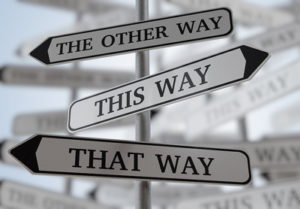 The experiments above were carried out by Professors Ayelet Fishbach and Christopher K. Hsee of the University of Chicago Booth School of Business and Luxi Shen of the University of Hong Kong as part of The Motivating-Uncertainty Effect: Uncertainty Increases Resource Investment in the Process of Reward Pursuit study. They posit that the reason some people respond better to not knowing something is that making the unknown known is an exciting experience all of its own. In other words, finding out what is in a package or what reward you’ve received is a positive thing, even if you end up with the smaller one.
The experiments above were carried out by Professors Ayelet Fishbach and Christopher K. Hsee of the University of Chicago Booth School of Business and Luxi Shen of the University of Hong Kong as part of The Motivating-Uncertainty Effect: Uncertainty Increases Resource Investment in the Process of Reward Pursuit study. They posit that the reason some people respond better to not knowing something is that making the unknown known is an exciting experience all of its own. In other words, finding out what is in a package or what reward you’ve received is a positive thing, even if you end up with the smaller one.
When people don’t know what they’re going to get, the experience can feel like a game rather than work. This is why uncertainty can be used as a motivating factor in certain instances. To put it another way, if you’ve been given the option of a box with a guaranteed £10 note inside it or another box with either £5 or £10, the idea of picking the guaranteed £10 is clear. If, however, you haven’t been given the choice and have instead had to work to get the box, you’re more likely to do an excess amount of work if your box contains either £5 or £10 as you’ll be excited to find out which one you get.
How It Relates To Gambling
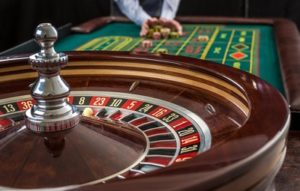 Until recently, most studies about uncertainty looked at the negative effects of it. That is why something like the ambiguity effect was the ruling thought process around the idea of uncertainty in life. The more recent studies suggest that uncertainty is much more thrilling for those involved, which gamblers could have told you a long time ago. We go back to the idea of the roulette wheel, with the uncertainty around where the ball will land a large part of the reason why so many people are drawn to it when they enter the casino’s gaming floor.
Until recently, most studies about uncertainty looked at the negative effects of it. That is why something like the ambiguity effect was the ruling thought process around the idea of uncertainty in life. The more recent studies suggest that uncertainty is much more thrilling for those involved, which gamblers could have told you a long time ago. We go back to the idea of the roulette wheel, with the uncertainty around where the ball will land a large part of the reason why so many people are drawn to it when they enter the casino’s gaming floor.
In gambling, the idea that the possibility of winning is just as exciting as the actual winning is what can lead to many people engaging in problematic gambling behaviours. If you were to get a buzz from seeing a coin spin in the air, waiting to find out whether it was going to land on heads or tails, the likelihood is that you’ll need to engage in something even more uncertainty in order to get such a buzz the next time around. Dopamine is released when we enjoy ourselves as well as when we discover the outcome of an uncertain situation.
This dopamine is a feeling that we want more of, so we can find ourselves pushing our boundary further and further in order to achieve it. As a result, people will constantly reach to achieve the highs that they’ve enjoyed in the past. This sort of thing rewards risk-taking behaviour, especially if the person engaging in it is the sort that likes to take risks in the first place. In the world of betting, this can lead to people placing bets on leagues or sports that they don’t know anything about, not because they are interested but because the sense of risk is increased.
Avoiding Falling Foul Of It
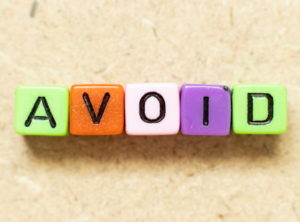 In the brain, uncertainty is its own reward. Because uncertainty is one of the key hallmarks of gambling, it is easy to get stuck in a world in which you gamble more and more in order to benefit from this reward. Repeated exposure to the dopamine released by uncertainty can even change the way in which people respond to losses. This can mean that problem gamblers actually get the release of dopamine when they lose their bets rather than winning them. It goes without saying, therefore, that we want to avoid uncertainty whenever we can.
In the brain, uncertainty is its own reward. Because uncertainty is one of the key hallmarks of gambling, it is easy to get stuck in a world in which you gamble more and more in order to benefit from this reward. Repeated exposure to the dopamine released by uncertainty can even change the way in which people respond to losses. This can mean that problem gamblers actually get the release of dopamine when they lose their bets rather than winning them. It goes without saying, therefore, that we want to avoid uncertainty whenever we can.
One way of doing this is by ensuring that we don’t bet on anything that we don’t know. In other words, avoid putting yourself in the sort of situation where you can end up placing a bet on a sport or league that you know nothing about, simply because you think it will give you a hit of dopamine. Betting on a league that you’ve never even heard of before might seem like a good idea at the time, but the reality is that it will almost certainly leave you feeling exposed financially. The same is true of betting on a sport that you don’t know anything about.
Every time you go to place a bet, as yourself whether you can reasonably be expected to predict the outcome of it. You won’t be right a lot of the time, but if you can explain to yourself why you think the outcome that you’ve bet on is likely to occur then you will at least know that you’ve got some knowledge of what you’re betting on. Placing a bet on Everton to beat Liverpool might seem absolutely clueless, for example, but if you know that Liverpool’s key man is out of the match then it makes a degree more sense.
You will probably still lose the bet, but it is better than placing a wager on the Ukrainian first division that you had never even heard of before you logged into your online bookmaker of choice. If your wife, husband, brother, mum or best friend asked you why you’ve bet on what you’ve bet on, can you offer them a reasonable explanation of the logic behind your decision? If not, don’t place the bet. This is the number one way that you can avoid falling foul of the thrill of uncertainty, instead placing more sensible and well-thought out wagers.
